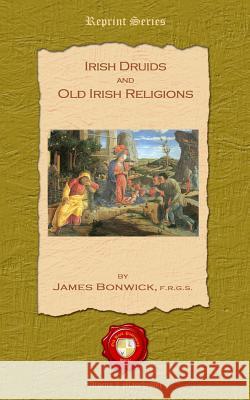Irish Duids and Old Irish Religions » książka
Irish Duids and Old Irish Religions
ISBN-13: 9781781070451 / Angielski / Miękka / 2011 / 352 str.
Who were the Druids ? This question has agitated the minds of the learned for a long time, and the replies have been various, as well as contradictory. Tradition preserves their memory as of a pious and superior race, prominently associated with the British Isles and France, and, in a lesser degree, with Belgium, Holland, Germany, and the lands of Scandinavia. Much romance has been long attached to them. We hear their chants in the Stone Circles. We listen to the heaven-inspired utterances of the Archdruid, as he stands on the capstone of a cromlech, in the eye of the sun, surrounded by the white-robed throng, with the bowed worshippers afar. We see the golden sickle reverently cutting off the sacred mistletoe. We follow, in imagination, the solemn procession, headed by the cross-bearer. We look under the old oak at the aged Druid, instructing disciples in mystic lore, in verses never to be committed to writing. We gaze upon the assembly of kings and chieftains, before whom the wise men debate upon some points of legislation. Were the Irish Druids like those of whom we read belonging to other lands? Did they spring up from among the Irish people, or were they strangers from another and distant shore? Could they have formed a distinct community, like the tribe of Levi, intermarrying among themselves only? Amidst much ignorance, and even barbarism, can the Druids have been distinguished by the learning and refinement attributed to them? The Druids, forming one subject of this publication, are still an enigma to us. They were, doubtless, neither so grandly wise, nor so low in reputation, as represented by tradition. Their ethical lessons must have assuredly prepared the way for Christian missions. ''Seven years your right, under a flagstone in a quagmire, Without food, without taste, but the thirst you ever torturing; The law of the judges your lesson, and prayer your language And if you like to return, You will be, for a time, a Druid, perhaps.''











